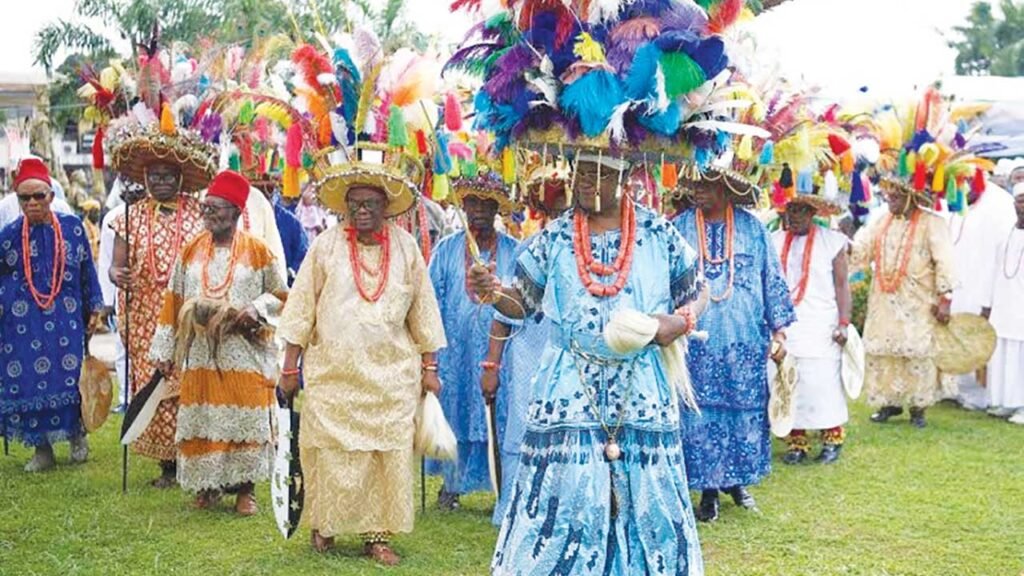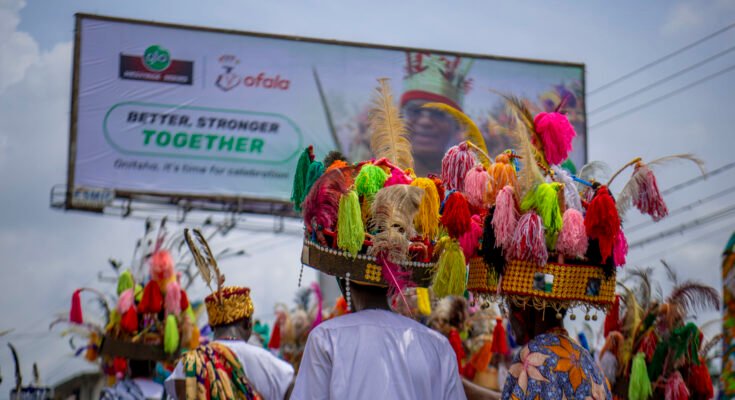The recent publication by Dom Ikeogu on extravagance and waste regarding title taking in Onitsha has elicited strong responses, one of which came from Onwa Buchi Amene.
First, I would like to commend Mr Ikeogu for clearly articulating his critical perspective. I must also commend those who have responded. Critical self evaluation is absolutely necessary for adequate understanding of the self and for auto-correction.
Further, we have to understand that societies must adapt to changing circumstances based on higher levels of truth, functionality and aesthetics or perish. And, in this regard, the functionality of institutions and ideas can change from positive to negative and vice versa over time, given changed circumstances.
So, Amene’s observation that critics haven’t built new and better functioning institutions should be seen by the reform minded as a call to do something concrete.

At more specific levels, I will agree that Onitsha is extravagant and wasteful as observed by Ikeogu. But we are not alone in this; most of West Africa, at least, is that way. The average cost of burial in Ghana in 2014 was 15,000 to 20, 000 USD. Africans via their culture tend to be both personally and institutionally (systemically) extravagant. We shall be competing with other African communities for the dubious honor of the institutionally extravagant capital of the world.
But we should be ashamed of ourselves that with all our famed learning we have not pumped the brakes and pioneered a change away from this trajectory of underdevelopment or rather counter-development. On this score, the argument that the huge expenditures on title taking boost the local economy holds no water given opportunity lost.
This is because it is the consumptive services economy that gains, not the real productive sector of Onitsha economy. Besides, the associated constant merriment is against the work ethics of sobriety, hard work, diligence, thrift and investment, postponement of reward, etc., all of which drive productivity in a capitalist economy.
I don’t accept the false notion that we can live in isolation of modern developments. All aspects of our life and culture should be attuned functionally to survival and success in the contemporaneous globalized world in a sustainable manner. Here, the fear of loss of identity must be overcome. Because, identity is not only a matter of preservation of heritage; it is also more importantly in our context, a matter of creative self manifestation by living generations in which they transform their heritage and global resources available to them into new creations that functionally and aesthetically augur well for their survival.

By their fruits, you shall know them. And here we have nothing to show but the veritable slum and environmental disaster that is our inland town, our urban underclass, etc. There are of course better things and values than these, but the speed of a train is that of its last coach. We are evaluated by the average standards of our public spaces and spheres.
Our ancestors who named their children Oyiboka (modernity embodied in the white man is greater) especially after the bombardment of Onitsha from the British warship HMS Pioneer in 1878 and her subsequent subjugation, were telling themselves and their descendants that they needed to integrate and bridge the knowledge, values and organizational gap that allowed a few young men to sail the oceans and River Niger up to Onitsha to terrorize and subjugate a population that vastly outnumbered them.
They rightly placed no limits on how we should do this, only that we should be reasonably and functionally successfully. But we have so far failed in that regard, which is why there is japa and our children born or raised in Diaspora are most unlikely to come home.
Yet, the African cannot find the level of respect and recognition he desires unless our homelands begin to work and cease to be sh** holes.
Lastly, I return again to self criticism and evaluation. It is not correct to say that the Ozo institution is being singled out for criticism. The knighthood and other institutions have internal and external critics too. We have to ask constantly whether our cultural institutions promote merit, integrity etc on a universal scale or whether they have succumbed to the forces of debasement and decadence.
Whether as a social and political community we have space for meaningful and helpful diversity in spirituality in so far as the public gains.

For instance, Christianity, now in its third or fourth generation in Onitsha families, and thus the spiritual tradition of the vast majority of Onitsha people, is yet to find proper cultural expression in the community’s life. Ways of inculturation without compromising the basic teachings of the Church are yet to be developed.
Yet Christianity (with its emphasis on the principles of consistency, universality and infinite responsibility for the other) is fundamental in the making of modernity, Western scientific epistemic orientation and Western power. It has also played a crucial part in the development and progress of Onitsha and Africa generally in the last century or so.
In essence, there is no human institution which does not need periodic fine-tuning or upgrades. I hope we fully understand the tasks before us and address them with vigor.
Prof Joseph C. Achike Agbakoba, KSM, writes from University of Nigeria, Nsukka.
![]()



